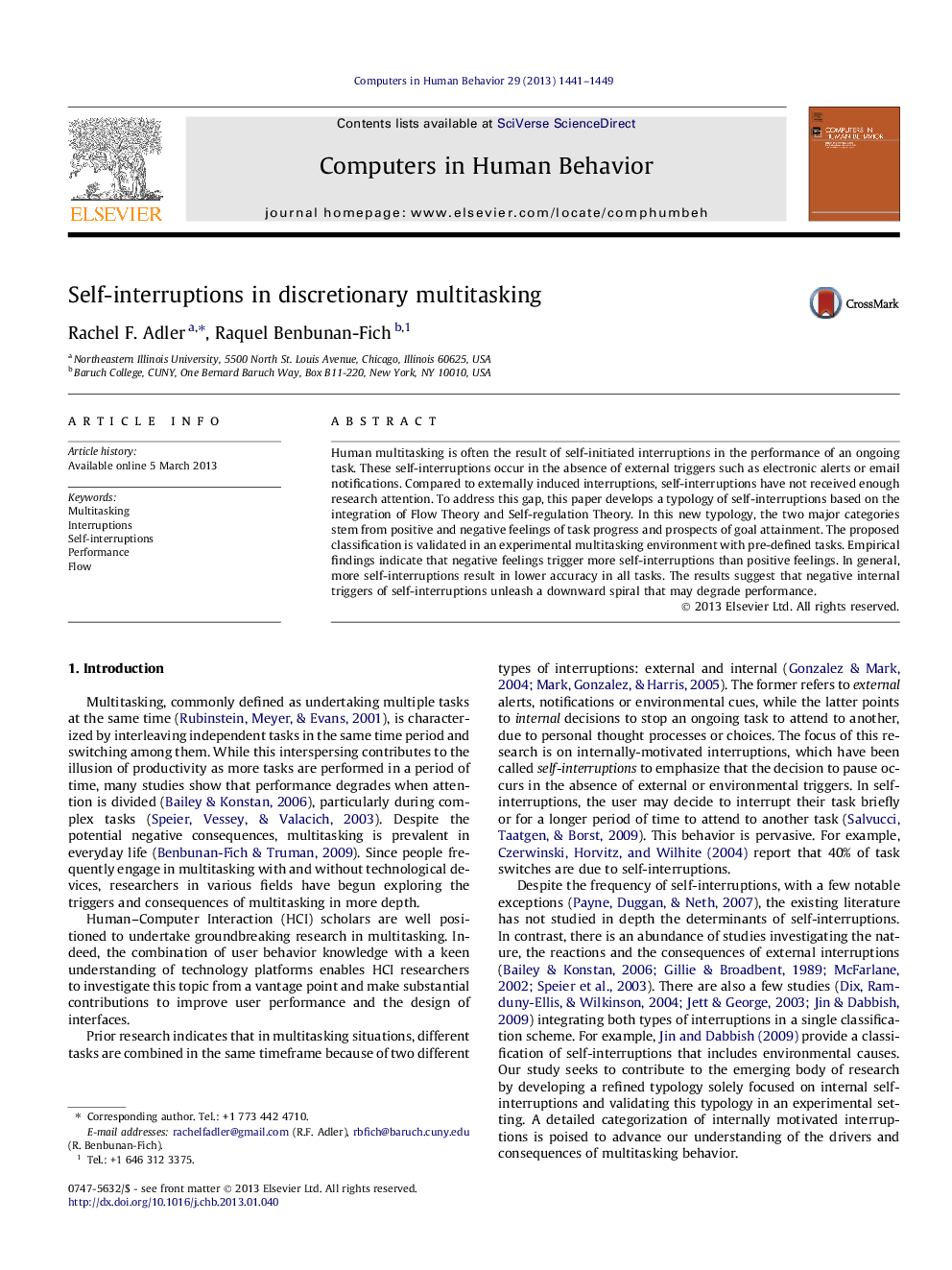| Article ID | Journal | Published Year | Pages | File Type |
|---|---|---|---|---|
| 351043 | Computers in Human Behavior | 2013 | 9 Pages |
Human multitasking is often the result of self-initiated interruptions in the performance of an ongoing task. These self-interruptions occur in the absence of external triggers such as electronic alerts or email notifications. Compared to externally induced interruptions, self-interruptions have not received enough research attention. To address this gap, this paper develops a typology of self-interruptions based on the integration of Flow Theory and Self-regulation Theory. In this new typology, the two major categories stem from positive and negative feelings of task progress and prospects of goal attainment. The proposed classification is validated in an experimental multitasking environment with pre-defined tasks. Empirical findings indicate that negative feelings trigger more self-interruptions than positive feelings. In general, more self-interruptions result in lower accuracy in all tasks. The results suggest that negative internal triggers of self-interruptions unleash a downward spiral that may degrade performance.
► We develop a typology of self-interruptions. ► The typology can be classified into positive and negative reasons for switching. ► The proposed classification is validated in an experimental setting. ► Negative feelings trigger more self-interruptions than positive ones. ► More self-interruptions result in lower accuracy in all tasks.
